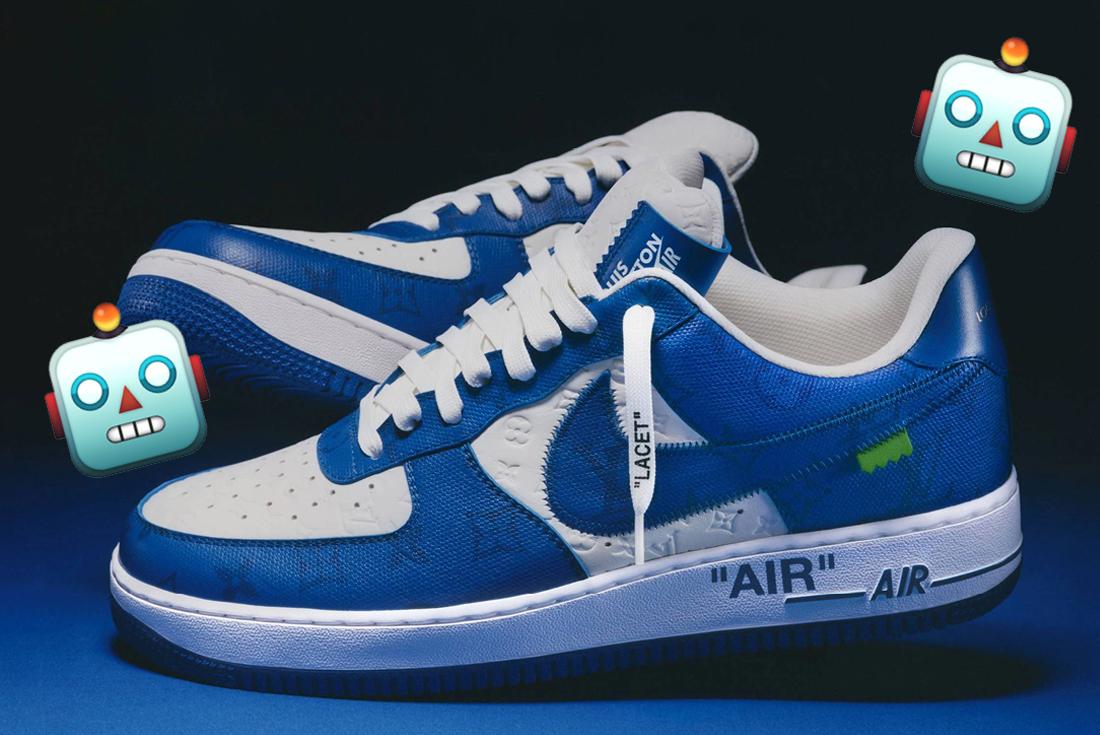Everything You Need to Know About Nike’s War on Resellers
This feature was originally published on October 13, 2022.
Resellers and their army of bots and backdoors have long wreaked havoc on the sneaker industry. Bots are hoovering up hot releases like a Roomba gone AWOL, and the rest of us are left paying well above retail price. Gone are the days when we could log in or line up and actually buy a pair of new sneakers we were salivating over.
But is all this about to change?
have announced updates to their Terms of Sale, saying that orders placed through software or bots could be cancelled. Furthermore, Nike could charge restocking fees, refuse refunds, or suspend accounts of users suspected of being resellers or exceeding the spending limits set by the brand.
Will this clampdown on bots make a dent?
We know you have plenty of questions, so we answered ten of the most burning.
What do these changes actually mean?
This is Nike basically saying: ‘resellers beware’. Resellers are using bots and specialised software to complete e-commerce transactions at a much faster speed than is possible with manual checkouts.
Nike have updated their Terms of Sale to reserve the right to cancel orders, charge restocking fees, limit purchase quantities and deny access to Nike products for any customer that appears to be purchasing products with the intent to resell.
The changes are an attempt to combat consumers buying sneakers solely for the purpose of flipping them on the resale market.
When does it come into effect?
Right now.
Why now?
The move comes after the lucrative x was sold at retail for 3.51 million won (approximately $2,440) in July. The same sneakers were subsequently sold on KREAM, a local resale marketplace, for 14 million won ($9,763).
This no doubt ruffled feathers, Nike Korea to update their Terms of Sale and issue a crackdown on the resell market. The US followed shortly thereafter.
I don’t live in the US or Korea. Will these changes impact me?
We expect these changes to roll out globally in the coming weeks and months.
Will it change anything?
This is a tough one and a question that’s no doubt on everyone’s mind. Resellers will always attempt to stay one step ahead of the game by changing IPs and operating on new VPNs.
It begs the question: if Nike haven’t been able to stop the bots up until now, what makes us think this will change anything? Is this just public posturing? Time will tell.
What about backdooring?
These new restrictions come after Nike’s warnings to retail partners last year that they could face ‘supply curtailment’.
The concern is that many limited-edition sneakers are being handed off to resellers, who then load them onto platforms like for massive profits.
Nike have already cut ties with several retailers guilty of backdooring, including Zappos, Dillard’s, Boscov’s, Bob’s Stores and City Blue.
Still, stores like (owned by son, Marcus) continue to operate despite being embroiled in resell drama. Marcus Jordan was accused of backdooring the ‘Freeze Out’ to a well-known sneaker reseller.
Does this have anything to do with Joe Hebert?
That incident certainly didn’t help.
19-year-old Joe Hebert found himself in a Swoosh-storm last year after it was revealed he was using his mother’s credit card (Nike’s general manager for North America Ann Hebert) to purchase sneakers.
Ann Hebert was forced to resign after it was revealed that Joe was running a resale platform with a monthly revenue of $200,000.
The incident shone a light on problems in the industry circulating for years and confirmed many of our hang-ups about the business more broadly – specifically nepotism and reselling.
For a company that prides itself on cultural optics and identity, it was a terrible look for Nike and severed a lot of trust between brand and consumer.
Is reselling fuelling the market for counterfeiters?
Short answer: yes. The counterfeit market has skyrocketed thanks to the erupting sneaker resale market.
This year, Nike even accused online marketplace StockX of allowing sales of counterfeit Nike sneakers.
‘Four pairs of counterfeit shoes were all purchased within a short two-month period on StockX’s platform, all had affixed to them StockX’s ‘Verified Authentic’ hangtag, and all came with a paper receipt from StockX in the shoe box stating that the condition of the shoes is 100% Authentic,’ Nike said in a court filing.
The legal battle was initially sparked by concerns over non-fungible tokens (NFTs), with Nike suing StockX and saying the online marketplace infringed on trademarks and could confuse customers.
But doesn’t the resell market create hype for Nike? Isn’t that a good thing?
This is a complex question. In some ways, yes.
One retailer recently ‘I think they (Nike) don’t actually mind people doing it because it sort of drives the hype. They’re multi-billion pound companies. At the end of the day, they could do a lot more with their technology to try to stop it.’
But with reseller margins closing in on Nike in recent years (the global sneaker-resale market is estimated at roughly 6 billion a year, and Nike said it recorded more than 46.7 billion in revenue last year), it’s now clear that Nike and other brands in the fashion space see resellers as a threat.
What happens next?
We’ll wait and see whether this makes a significant impact or not. The news is overwhelmingly positive so far, but is it enough?
